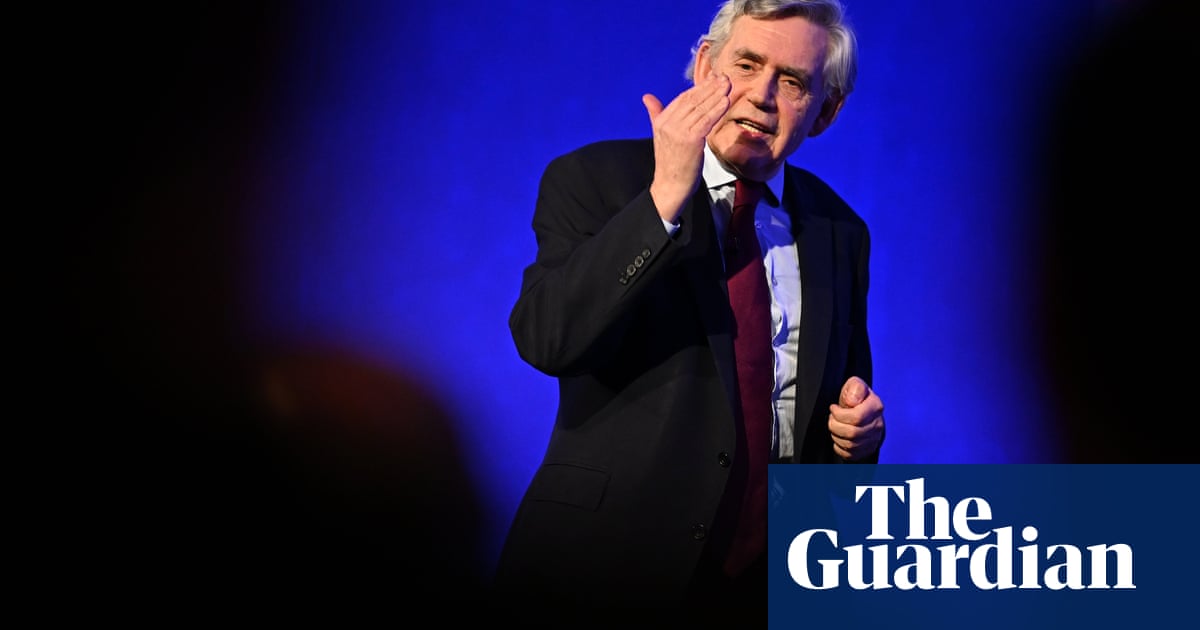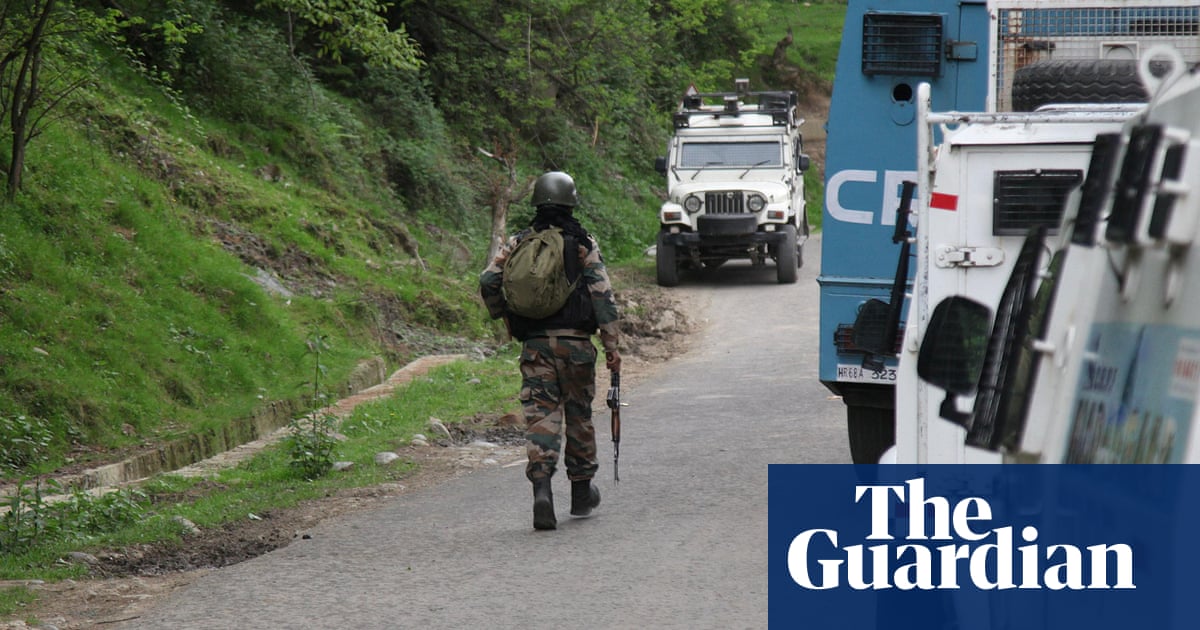EK was completing a take-home exam on 6 March when the dean of student conduct at Swarthmore College emailed her about an urgent Zoom meeting. On the video call, she said, the dean told her that she would be suspended for one semester for staging a protest at the college’s trustees’ dinner in December 2023. Using a bullhorn, EK had interrupted the event to demand that the school divest from products that fuel Israel’s war on Gaza.
A panel of students and school employees had found her responsible for assault, among other code of conduct violations for the incident. EK, a final-semester senior who is using a pseudonym out of fear of retaliation, recalled being in shock: “I’ve been really distraught by all of this,” EK said. “I used to be unhoused before I came to Swarthmore, so to be put into this situation again is very disturbing.”
She filed an appeal in mid-March and remained in campus housing until the school came to a decision on 10 April. A first-generation, low-income college student on financial aid, EK had been forbidden from campus housing pending the appeal decision, and lost crucial finances when she was let go from her school job. She said she also fears she may be vulnerable to attacks from the Trump administration, which has penalized pro-Palestinian protesters: “I’m worried that this is not the end, and only the beginning, especially now that it’s on my record. It could be the case that I could face further punitive measures from the federal government, and the college is not doing anything to protect students.”
In March, the Trump administration listed Swarthmore College as one of 60 schools at risk of losing hundreds of millions of federal dollars for allowing what it considered antisemitic harassment on campus. Colleges and universities across the country were already quashing pro-Palestinian protests by suspending and arresting students, and several revised their policies to ban encampments prior to Trump’s inauguration. But some have gone even further to penalize students in light of the government’s threats to pull their funding.
In some cases, those preventive measures have been for naught. Columbia announced that it expelled students who occupied a building last year and revoked alumnis’ diplomas at the same time the federal government still cancelled $400m worth of contracts and grants to the university. Harvard University placed the undergraduate Palestine Solidarity Committee on probation and temporarily banned the pro-Palestinian group from hosting events, only for the Trump administration to freeze $2.2bn in federal grants to the school two weeks later.
Though Columbia and Harvard have received the most attention for their responses to activists, campus crackdowns have been widespread. The Guardian spoke to 1o student protesters in Pennsylvania, California, Wisconsin and New York who have faced disciplinary action from their colleges and universities. They said that the process is often arbitrary and marked by fear tactics aimed to discourage them from protesting in the future. Building a defense for disciplinary hearings, they said, distracted them from their studies and caused anxiety, as the processes can last months.
In some cases, the disciplinary process has no conclusive end, causing students to languish while being banned from campus or otherwise limited from participating in student life. Following pushback from students and faculty, EK said, Swarthmore College agreed to pay for her off-campus housing until the end of the semester. She is taking virtual classes and will be allowed to graduate on time, but she is still barred from attending on-campus events or from walking with her peers during graduation.
In a statement to the Guardian, Swarthmore College spokesperson Alisa Giardinelli said that the school repeatedly warned student protesters that their actions were in violation of the college’s code of conduct, and that they would face disciplinary action if found responsible. Despite the college’s efforts to discuss the students’ demands, including that the school divest from weapons manufacturers that fuel Israel’s war on Gaza, “some students chose to continue to engage in – and in some cases escalated – behaviors that violated the Code”, Giardinelli said.
Guardian interviews with student activists, attorneys and researchers reveal an increased sense of hostility on campuses since 7 October 2023, which has stoked fear and anxiety and resulted in financial concerns for some pro-Palestinian student protesters. Some attorneys have said that Palestinians, Arab Muslims, and people of color have been universities’ primary targets when repressing pro-Palestinian free speech. In March, the federal government went even further in targeting pro-Palestinian scholars and students of color by arresting and detaining the Georgetown University professor Badar Khan Suri and the Columbia graduate student Mahmoud Khalil.
“A majority of students who are contacting us for support are either Palestinian, Arab Muslim or other students of color,” said the advocacy group Palestine Legal’s staff attorney, Tori Porell. Additionally, low-income students or those who rely on financial aid are hardest hit by disciplinary actions, she said: “Students who live on campus might rely on campus meal plans. If they are abruptly suspended, they are losing access to housing, to their food, to healthcare, and they might not have funds to just fly home the way some students with more resources would.”
In 2024, Palestine Legal received more than 2,000 requests for legal assistance, with about two-thirds coming from students, staff or faculty on college campuses.
While schools have long served as stages for mass protests including against the Vietnam war and South Africa’s apartheid, activists say that the universities’ actions toward them have had a chilling effect on civil disobedience this academic year. Still, students such as Dahlia Saba, a graduate student at the University of Wisconsin-Madison, see it as their duty to continue pushing universities to divest from Israel, whose war on Gaza has killed at least 62,000 Palestinians since October 2023.
Saba was at a conference in Colorado last July when she received a concerning text message from her schoolmate Vignesh Ramachandran. The two were being investigated by the University of Wisconsin-Madison for a May 2024 op-ed that they’d written in a local publication. The article criticized the university’s failure to respond to a student-led proposal around transparent and ethical investment, and demanded that it divest from arms-manufacturing companies fueling Israel’s war on Gaza.
She pulled up an email from the university about the charges that she faced, which included allegedly refusing to comply with rules about no picnicking or camping. (Wisconsin state statute prohibits tents or camping on undesignated parts of university land.) Saba, a graduate student in electrical engineering, recalled her thoughts in that moment: would the charges jeopardize her career, or prevent her from being vocal about Palestinian rights in the future?
“For me, it’s still important to speak up,” Saba, a Palestinian American, told the Guardian, “because the point of these repression tactics is to try to silence us. And so I think that makes it all the more imperative to refuse to be silenced.”
A ‘Palestine exception’ to free speech
Since October 2023, many schools have responded to pro-Palestinian campus protests in an outsized way compared with demonstrations going back several decades, say attorneys. In a Harvard Crimson series, 11 former student activists said that Harvard’s response to pro-Palestinian protesters had been more violent and punitive than the treatment they experienced for protesting against South Africa’s apartheid, against fossil fuel divestment, and for university workers to be paid living wages.
Race and political views may account for universities’ stricter policies and punishments since last year. Pointing to the Orange county district attorney’s list of people who had been suspended and arrested, Thomas Harvey, a California attorney who represents pro-Palestinian students facing criminal charges, said: “It’s very rare that it’s anyone other than people of color.” Harvey said he knows many of the students on the district attorney’s list because he’s represented them or provided them pro bono legal support. “It seems very obvious that race, combined with political viewpoints about being pro-Palestinian, are the targets of the most severe punishment.”
UT, a Muslim woman of color and Swarthmore College senior, said that she was alarmed to learn how closely the college surveilled her during pro-Palestinian protests. On 6 March 2025, UT, who is using her initials out of fear of being doxxed, received an email from the school that she would be on academic probation until she graduated for violating the college’s code of conduct during rallies between October 2023 and March 2024. Last spring, she received a packet from the university on the evidence they had against her, including CCTV footage of her walking on a path next to the woods on campus.
“It was a real moment of realization that there is so much surveillance on this campus, and especially out of the students that were charged, very few were white students. Most students were students of color, and first-generation, low-income students. And to learn that the college is so meticulously tracking these students – it was a very scary moment.”
Giardinelli of Swarthmore College told the Guardian that “sanctions are based solely on alleged misconduct, without regard to race, socioeconomic standing, or identity”. Of the surveillance, she said: “CCTV images are only used, when available, to verify involved parties and behaviors that are suspected to be, or are alleged violations of, the Student Code of Conduct or of state and federal law.”
Schools’ crackdowns on pro-Palestinian student protesters are indicative of a “Palestine exception” to free speech, said Farah Afify, a research and advocacy coordinator at the civil rights group Council on American-Islamic Relations (Cair). As the co-author of Cair’s analysis on how universities target pro-Palestinian protesters, Afify consolidated incidents found in newspaper reports and education-related complaints that Afify received from October 2023 to May 2024.
“Students who support Palestinian rights,” Afify said, “tend to face harsher discipline, harsher criticism, more challenges by people who would otherwise encourage that kind of expression because it meets the standard principles of what we’d expect of our institutions of higher education.” Cair has since launched a website where students can report their campuses to be investigated and placed on the organization’s “institutions of particular concern” list for targeting pro-Palestinian protesters.
‘There’s a genocide, and we need to be organizing against it’
While Saba was found responsible for violating the University of Wisconsin’s policies by a student-conduct investigating officer last August, her charges were dropped in October after she appealed them before a committee consisting of a student and university employees. Palestine Legal also sent her school a letter demanding that they end disciplinary proceedings against students in September, which assisted in Saba and another unnamed student’s charges being dropped.
In a statement to the Guardian, University of Wisconsin-Madison spokesperson Kelly Tyrrell said that the school “does not disclose details related to individual student conduct cases”, and weighs each case based on a person’s conduct history and the circumstances surrounding the offense. She said the university seeks to create a campus “where all students feel supported, can pursue their educational goals without disruption, and are free to express themselves and engage across difference on complex topics, whether in their local community or around the world”.
Despite the intimidation and disciplinary action that student protesters say they faced by their universities, they remain resolute in their fight to speak against their schools’ ties to Israel.
Saba said she feels vindicated that her charges were dropped, though she thinks that the university’s system was flawed for finding her co-author, Ramachandran, culpable on the same limited evidence. Still, she holds onto hope that her school will eventually disclose its investments to the public and divest from companies that contribute to or profit from Israel’s war on Gaza.
“This university, like many other universities, has lost its sense as a moral institution, an institution of ethics and an institution that aspires to do good in the world,” Saba said. “I want to see a university that actually responds to the demands of its students, rather than restricting their rights, and that prioritizes acting as a force of justice in the world, rather than just a machine that takes in money and spits out degrees.”
Additional reporting by Adria R Walker

 9 hours ago
5
9 hours ago
5













































